LUIS E. NAVIA




Chapter 1 13
Chapter 2 61
Chapter 3 93
Chapter 4 129
Chapter 5 165

 nce there was a man named Diogenes who lived more than twenty-three centuries ago. He was born in Sinope, a Greek city on the southern coast of the Black Sea. He spent most of his life in Athens and Corinth. He was a philosopher who lived in a tub. He became known as "Diogenes the Cynic," a name that literally means "a man from God who acted like a dog." He lived a strange life and said many bizarre things, for which he became very famous-and also very infamous. He wrote a few works that we no longer have. At some point in his long life-he is said to have died when he was ninety years oldhe declared war on the whole world and attempted to deface its currency, that is, the values by which people live. His mission was to demolish the human world. He died in Corinth in 323 BCE in a place known as the Craneum, that is, the skull, just as Jesus died in a place known as Golgotha, which also means the skull. One report about Diogenes' death tells us that he died by withholding his breath-he was tired of breathing or rather of the futile war he had waged against the world. Who or what was this peculiar man and what can we say about the philosophical movement, Cynicism, to which he gave rise? What, if any, are the important philosophical lessons that lurk beneath his outrageous antics and unusual mode of life?
nce there was a man named Diogenes who lived more than twenty-three centuries ago. He was born in Sinope, a Greek city on the southern coast of the Black Sea. He spent most of his life in Athens and Corinth. He was a philosopher who lived in a tub. He became known as "Diogenes the Cynic," a name that literally means "a man from God who acted like a dog." He lived a strange life and said many bizarre things, for which he became very famous-and also very infamous. He wrote a few works that we no longer have. At some point in his long life-he is said to have died when he was ninety years oldhe declared war on the whole world and attempted to deface its currency, that is, the values by which people live. His mission was to demolish the human world. He died in Corinth in 323 BCE in a place known as the Craneum, that is, the skull, just as Jesus died in a place known as Golgotha, which also means the skull. One report about Diogenes' death tells us that he died by withholding his breath-he was tired of breathing or rather of the futile war he had waged against the world. Who or what was this peculiar man and what can we say about the philosophical movement, Cynicism, to which he gave rise? What, if any, are the important philosophical lessons that lurk beneath his outrageous antics and unusual mode of life?
In the preparation of this book, my purpose has been to present a comprehensive, balanced, and documented account of his life and ideas on the basis of the information provided by ancient authors. Undoubt edly, this task is difficult because in his case, perhaps more than in those of other philosophers, we face a scarcity of reliable information, as well as a great number of anecdotal reports of varying historical value that are responsible for the creation of a complex literary legend. Beneath this legend, who or what Diogenes was, what philosophical convictions animated and guided him, what circumstances led him to assume so radical an attitude of defiance toward his world-these are questions that admit of no easy answers and that, when answered, remain problematical and open to interpretation and diverse judgments. Still, despite the difficulties generated by the scarcity of reliable information, it is possible to reconstruct, even if only in a sketchy way, the portrait of the famous philosopher who has managed to remain alive in the imagination of many even twenty-three centuries after his death.
From this portrait we can draw important philosophical lessons that are of relevance and value for us, who, despite so many centuries of cultural evolution and despite innumerable advances in science and technology, remain largely as intellectually dense and morally corrupt as the "less-than-human" creatures among whom Diogenes lived, and for whom he reserved some of his most caustic and devastating comments. Neither in the realm of ideas nor in the moral fabric of society nor in national or international affairs nor, in fact, in any area of human existence, have we made any progress beyond the world in which he lived. We might even say that cultural and moral stagnation is the correct way to describe the course of human history since the time when, carrying a lighted lamp in broad daylight, he walked backward through the streets of Athens in search of a true human being.
Classical Cynicism, of which Diogenes is the best representative, is a fascinating philosophical and cultural phenomenon of Greek and Roman times. For almost eight hundred years, philosophers, who called themselves Cynics, literally 'dogs' in their language, preached and practiced a set of convictions and a style of life that challenged, often in astonishing ways, the norms and conventions of their society. From their point of view, the human world was in a state of moral bankruptcy and intellectual vacuity that required a systematic defacing of its values. This is precisely what the Cynics endeavored to do, unsuccessfully, we might say, for the world took only a passing notice of them and proceeded to act as if they had never existed. Even their writings, apparently voluminous and varied, perished and were mostly forgotten. But not for this, should the Cynics be set aside or ignored, for their message has relevance in every human context and especially in ours, when, because of the accomplishments of science and the engulfing progress of technology, we may have come to believe that all our affairs, intellectual and moral, are in order. Every age, wrote d'Alembert in the eighteenth century, needs a Diogenes, and both the necessary courage to withstand his onslaught on its most cherished convictions and the mental clarity to understand his message. If this was true in the eighteenth century, it is not difficult to see that it is even truer at the present time.
I have divided this book into five chapters. In chapter 1, I present a sketch of Diogenes' biography, making abundant references to ancient testimonies and to modern scholarly interpretations. Chapter 2 is devoted to the elucidation of the most distinctive feature of Cynicism, namely, its rhetoric or medium of expression, specifically as this was exhibited by Diogenes, who communicated and taught his message of rebellion always by means of the example of his life. Chapter 3 deals with the process through which Diogenes became a Cynic and the influences that may have contributed to that process. This process-the Cynic metamorphosis-is complex, and may involve psychological and sociological factors. In chapter 4, I identify what may be referred to as the building blocks of Cynicism, specifically those related to Diogenes' thought. Cynicism, as will be shown, was not a system of ideas in which we can identify well-delineated components or a dear scheme of philosophical principles. Far more than a theoretical stance vis-a-vis the world, Cynicism was a response, a reaction, to those conditions of human existence that the Cynics found unacceptable from the point of view of reason. This response surfaced among them in the form of apothegms, aphorisms, and diatribal statements, and especially in actions and modes of behavior that were carefully designed to deface or invalidate the currency, that is, the values and accepted norms on the basis of which people then and now structure their lives. Diogenes' response to the world was expressed in terms of what has been called the rhetoric of Cynicism, which is a series of gestures, acts, and comments about specific people and situations. Beneath their seemingly amorphous character, however, they are the manifestations of convictions and concepts that are clearly identifiable.

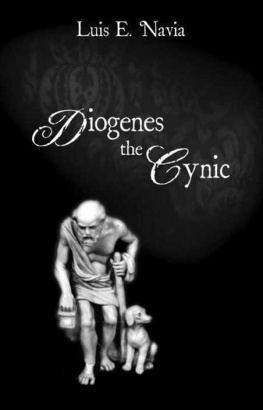

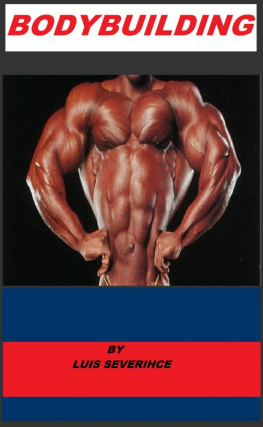
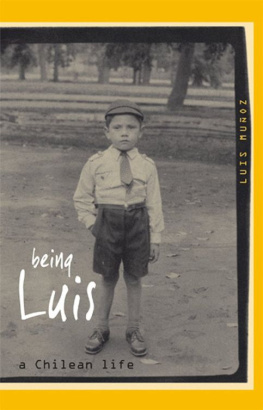
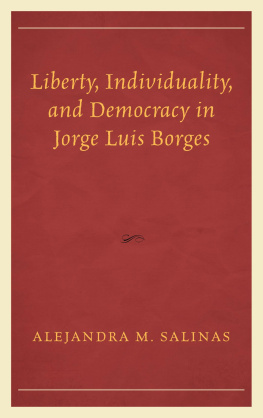
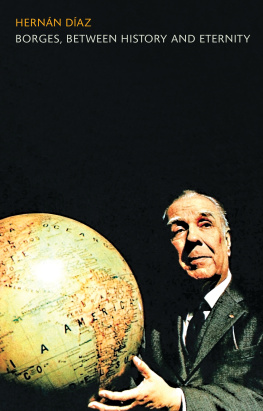










 nce there was a man named Diogenes who lived more than twenty-three centuries ago. He was born in Sinope, a Greek city on the southern coast of the Black Sea. He spent most of his life in Athens and Corinth. He was a philosopher who lived in a tub. He became known as "Diogenes the Cynic," a name that literally means "a man from God who acted like a dog." He lived a strange life and said many bizarre things, for which he became very famous-and also very infamous. He wrote a few works that we no longer have. At some point in his long life-he is said to have died when he was ninety years oldhe declared war on the whole world and attempted to deface its currency, that is, the values by which people live. His mission was to demolish the human world. He died in Corinth in 323 BCE in a place known as the Craneum, that is, the skull, just as Jesus died in a place known as Golgotha, which also means the skull. One report about Diogenes' death tells us that he died by withholding his breath-he was tired of breathing or rather of the futile war he had waged against the world. Who or what was this peculiar man and what can we say about the philosophical movement, Cynicism, to which he gave rise? What, if any, are the important philosophical lessons that lurk beneath his outrageous antics and unusual mode of life?
nce there was a man named Diogenes who lived more than twenty-three centuries ago. He was born in Sinope, a Greek city on the southern coast of the Black Sea. He spent most of his life in Athens and Corinth. He was a philosopher who lived in a tub. He became known as "Diogenes the Cynic," a name that literally means "a man from God who acted like a dog." He lived a strange life and said many bizarre things, for which he became very famous-and also very infamous. He wrote a few works that we no longer have. At some point in his long life-he is said to have died when he was ninety years oldhe declared war on the whole world and attempted to deface its currency, that is, the values by which people live. His mission was to demolish the human world. He died in Corinth in 323 BCE in a place known as the Craneum, that is, the skull, just as Jesus died in a place known as Golgotha, which also means the skull. One report about Diogenes' death tells us that he died by withholding his breath-he was tired of breathing or rather of the futile war he had waged against the world. Who or what was this peculiar man and what can we say about the philosophical movement, Cynicism, to which he gave rise? What, if any, are the important philosophical lessons that lurk beneath his outrageous antics and unusual mode of life?